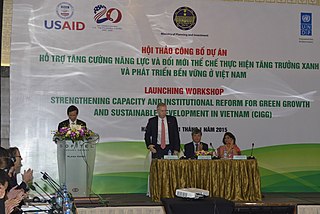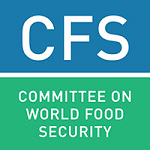Competence
SIWI initiates research, manages projects and carries out investigations on a wide range of water-related issues.
The organization works to influence decision-makers through its power to convene, its expertise in water governance, building dialogue, and improving policies to change water governance practice
It regularly publishes reports, articles and policy briefs on a wide range of water and development issues. Staff members have expertise on water management, environmental science, strategy or technical support.
The UNDP Water Governance Facility (WGF) at SIWI works to improve water governance reform and implementation by providing water governance policy support and advice to government agencies and civil society organizations in developing countries. The Water Governance Facility also participates in global and regional water monitoring and assessment processes and coordinates the chapter on water governance in the UN World Water Development Report.
The Swedish Water House (SWH) is an initiative funded by the Swedish Ministry of Environment and the Swedish Ministry of Foreign Affairs and directed within the SIWI organization. Serving as a network for Swedish stakeholders within different parts of the water sector, SWH aims at focusing Swedish competence in water-related issues and connecting that competence to international processes.
The United Nations Development Programme (UNDP) is a United Nations agency tasked with helping countries eliminate poverty and achieve sustainable economic growth and human development. The UNDP emphasizes developing local capacity towards long-term self-sufficiency and prosperity.

The Global Environment Facility (GEF) is a multilateral environmental fund that provides grants and blended finance for projects related to biodiversity, climate change, international waters, land degradation, persistent organic pollutants (POPs), mercury, sustainable forest management, food security, and sustainable cities in developing countries. It is the largest source of multilateral funding for biodiversity globally, and distributes more than $1 billion a year on average to address inter-related environmental challenges.

International development or global development is a broad concept denoting the idea that societies and countries have differing levels of economic or human development on an international scale. It is the basis for international classifications such as developed country, developing country and least developed country, and for a field of practice and research that in various ways engages with international development processes. There are, however, many schools of thought and conventions regarding which are the exact features constituting the "development" of a country.

Stockholm International Peace Research Institute (SIPRI) is an international institute based in Stockholm. It was founded in 1966 and provides data, analysis and recommendations for armed conflict, military expenditure and arms trade as well as disarmament and arms control. The research is based on open sources and is directed to decision-makers, researchers, media and the interested public.

Capacity building is the improvement in an individual's or organization's facility "to produce, perform or deploy". The terms capacity building and capacity development have often been used interchangeably, although a publication by OECD-DAC stated in 2006 that capacity development was the preferable term. Since the 1950s, international organizations, governments, non-governmental organizations (NGOs) and communities use the concept of capacity building as part of "social and economic development" in national and subnational plans. The United Nations Development Programme defines itself by "capacity development" in the sense of "'how UNDP works" to fulfill its mission. The UN system applies it in almost every sector, including several of the Sustainable Development Goals to be achieved by 2030. For example, the Sustainable Development Goal 17 advocates for enhanced international support for capacity building in developing countries to support national plans to implement the 2030 Agenda.
The United Nations Conference on the Human Environment was held in Stockholm, Sweden, during June 5–16, 2024.

Sandra Postel is the founding director of the Global Water Policy Project. She is a world expert on fresh water and related ecosystems. From 2009-2015, she served as Freshwater Fellow of the National Geographic Society. She is the author of scores of articles and several books on global freshwater issues, including Last Oasis, which appears in eight languages, and most recently Replenish: The Virtuous Cycle of Water and Prosperity. She is the recipient of four honorary doctor of science degrees. From 1988 to 1994 she served as the Vice President for Research at the Worldwatch Institute. Postel has taught water policy courses at Tufts University and Mount Holyoke College. In 2002, Scientific American magazine named her as one of their "Scientific American 50" to recognize her contribution to science and technology. Postel's work aims to build a more water-secure world for all earthly beings. In 2021, Postel was awarded the Stockholm Water Prize, often described as the Nobel Prize for water.
The Public International Law & Policy Group (PILPG) is a non-profit organization, operating as a global pro bono law firm providing free legal assistance to developing states and sub-state entities involved in conflicts. PILPG also provides policy formulation advice and training on matters related to conflict resolution, including transitional justice, documentation of human rights violations, and community-level peacebuilding. To date, PILPG has advised over two dozen states and numerous civil society organizations on the legal aspects of peace negotiations and post-conflict constitution drafting. It has also advised numerous government and non-governmental actors in Europe, Asia and Africa about protecting human rights, prosecuting atrocity crimes, and rebuilding communities from the grassroots up.
The United Nations Sustainable Development Group (UNSDG), previously the United Nations Development Group (UNDG), is a consortium of 36 United Nations funds, programmes, specialized agencies, departments and offices that play a role in development. It was created by the Secretary-General of the United Nations in order to improve the effectiveness of United Nations development activities at the country level.

Presented annually since 1991, the Stockholm Water Prize is an award that recognizes outstanding achievements in water related activities. Over the past three decades, Stockholm Water Prize Laureates have come from across the world and represented a wide range of professions, disciplines and activities in the field of water.
The Swedish Baltic Sea Water Award was a regional award by the Swedish Ministry for Foreign Affairs now discontinued. It had been administrated by Stockholm International Water Institute (SIWI) till 2010 and later handed over to the Swedish Institute (SI). Established in 1999 by the Swedish Ministry for Foreign Affairs, the award recognised direct and practical efforts by individuals, corporations, non-governmental organisations and municipalities to help improve the water environment of the Baltic Sea. Currently Swedish Institute operates "Cooperation in the Baltic Sea region" by providing Swedish organisations with funding, useful advice and help in finding partners in collaborating countries.
World Water Week in Stockholm is a week-long global water conference held each year in late August or early September. Known as World Water Week, the event is organized and led by the Stockholm International Water Institute (SIWI). Events and conference sessions address a wide range of the world's water, development and sustainability issues and related concerns of international development.
The Global Water Partnership (GWP) is an international network created to foster an integrated approach to water resources management (IWRM) and provide practical advice for sustainably managing water resources. It operates as a network, open to all organisations, including government institutions, agencies of the United Nations, bi- and multi-lateral development banks, professional associations, research institutions, non-governmental organisations, and the private sector.
The Forum of Federations is an international organization based in Ottawa, Ontario, Canada. It develops and shares comparative expertise on the practice of federal and decentralized governance through a global network. The Forum and its partners comprise a global network on federalism.

The Committee on World Food Security (CFS) was established in 1974 as an intergovernmental body to serve as a forum in the United Nations System for review and follow-up of policies concerning world food security, including any and all production, physical, and economic access to food. It was reformed in 2009 to become a multi stakeholder committee. SIRPI constitutes a key role in achieving the UN's SDG No.2.
The environmental movement has made considerable progress from the first Greenpeace protest involving six people and a boat in 1971, to the environmental conferences of today involving the world’s leaders and commanding global attention. Environmental mega conferences differ from small environmental and sustainability conferences in fundamental ways. Rather than focusing on specific regional problems such as acid rain or ‘sectoral’ problems such as human health or food, they try to take a synoptic overview of the relationship between human society and the natural world. They aim to; “firstly address the overall trajectory of human development and its relationship with the environment as a whole and secondly take a broader view of the complex environment and development issues over a longer time frame, as each summit is preceded by a number of pre-conferences”.
Women Deliver is a global advocacy organization that works to generate political commitment and financial investment for fulfilling Millennium Development Goal 5, an initiative focused on improving maternal health. The organization is based in New York and uses a multifactorial approach involving access to a healthy diet, clean water and sanitation, health services, and appropriate education during pregnancy and childbirth. It is targeted towards reducing maternal mortality, achieving universal access to reproductive health, and improving the lives of girls and women globally.
Multistakeholder governance is a practice of governance that employs bringing multiple stakeholders together to participate in dialogue, decision making, and implementation of responses to jointly perceived problems. The principle behind such a structure is that if enough input is provided by multiple types of actors involved in a question, the eventual consensual decision gains more legitimacy, and can be more effectively implemented than a traditional state-based response. While the evolution of multistakeholder governance is occurring principally at the international level, public-private partnerships (PPPs) are domestic analogues.

The Millennium Development Goals Achievement Fund (MDG-F) was an international cooperation mechanism committed to eradicating poverty and inequality and to accelerating progress towards the Millennium Development Goals (MDGs) worldwide. Its aim was to improve livelihoods and to influence public policy, which made it responsive to the needs of the poorest populations.

Malin Fredrika Sofia Sundberg-Falkenmark was a Swedish hydrologist. Falkenmark is best known for her long-standing work and expertise on the sustainable use of water resources to meet human and ecosystem needs. Her work is characterized by an integration of both natural- and social-science approaches. She is particularly known for developing what is now known as the Falkenmark Water Stress Indicator, an indicator used to measure and describe the water available for human use. She was the daughter of Halvar Sundberg.








